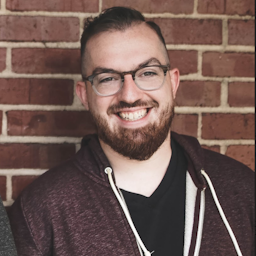
There's a difference between the skills needed to write code, and those needed to lead a successful business.
Many people get into tech because they want to build a startup and change the world. But, as I've learned through my own journey, the skills needed to write code are not the same as those needed to build a successful business. The secret sauce is not taught computer science programs or at bootcamps.
This gap is significant, especially for those who dream of not just joining tech giants like Apple in 2024 but also for the trailblazers aspiring to be the founders of the next big thing.
A fundamental skill of building a product involves continuous evolution of product strategy. This is where feedback, analytics and iteration become invaluable. It's more than just building once; building, marketing, testing, learning from real-world feedback, and adapting are all critical ingredients. In our journey with Craftwork, for instance, the process of constantly tweaking and improving our product based on customer data has been crucial. It's a cycle of iteration that helps functional products becoming great ones.
A critical aspect of this iterative process is measurement. Understanding what to measure and setting realistic goals and metrics are foundational to any business's success. It's goes past trusting your gut; it's about making informed changes. At Craftwork, we've seen over and over that honest and realistic measurement of the right metrics is key. This approach helps us not only in refining our product but also in steering the business effectively.
It's a practice of self-honesty that transforms insights into actionable steps towards improvement.
This involves acknowledging what's working and, more importantly, what isn't. As I've built out my work with my personal site, I do my best to apply these same principles of measurement, honesty and self-reflection.
Regularly evaluating my creation and engagement strategies has been a journey. I do my best to regularly take an objective look at what resonates and what falls flat, and making informed decisions from there. This process, though sometimes daunting, is incredibly rewarding as it leads to a deeper understanding of my audience and a more impactful online presence.
Whether you're developing a product, building a business, or working on something else, I encourage you to constantly question, measure, and refine. So, take this challenge: measure your work, ask the hard questions, and be ready to change.
We're all somewhere between the before-picture and the after-picture. The key is to keep moving forward. 🚀
Tools I use to measure
These are some of the tools I reach for to help me measure and improve my work. The links below also contain referral codes - if you sign up for any of these tools, I'll get a small kickback. If you'd rather not use the referral links, I ain't mad atcha.
-
PostHog has become an invaluable tool for understanding how people interact with the products I build. Being able to build dashboards with rich analytics and insights means the difference between guessing what's working and knowing what's working.
-
Fathom Analytics has long been the analytics tool I use for my personal site. It's simple, privacy-focused, and gives me the insights I need to make informed decisions about my content. Without it, I wouldn't know that in 2023, 10,000 unique people read my article about Javascript's filter(Boolean) pattern. That's pretty cool.
-
Transistor.fm is where I host my various podcasts - including an audio version of 💌 Tiny Improvements. In addition to being a dead simple hosting tool, I also get great analytics on listener patterns, and which episodes are hitting the mark.
Creators who have my attention
These are some great creators who have been occupying my corner of the internet lately. Do yourself a favor and give them a follow.
- 🤖 Josep Ferrer is a tech writer and data analyst who has been producing a great series of illustrations explaining ML and & algorithms on threads.
- 🎥 Andrew Peacock shares videos about developer productivity and tools on his YouTube channel. I really enjoyed his hot take on why ChatGPT is making you a bad programmer.
- ☕️ Brian Quan is a coffee expert who has gone deep down the rabbit hole, and has been making some great videos explaining the depths of the coffee industry. He's also crazy enough to make his own pourover coffee at an airport, which is a level of dedication I can appreciate.

I've been Live Coding again
I spent a few hours last weekend live coding on my YouTube channel, @mikebifulco. I've got aspirations to publish more pre-recorded content as well.
You can see the replay on YouTube, or here: Configuring Resend Broadcasts for newsletters on my Next.js website
If you're interested in seeing more videos from me, please subscribe!




